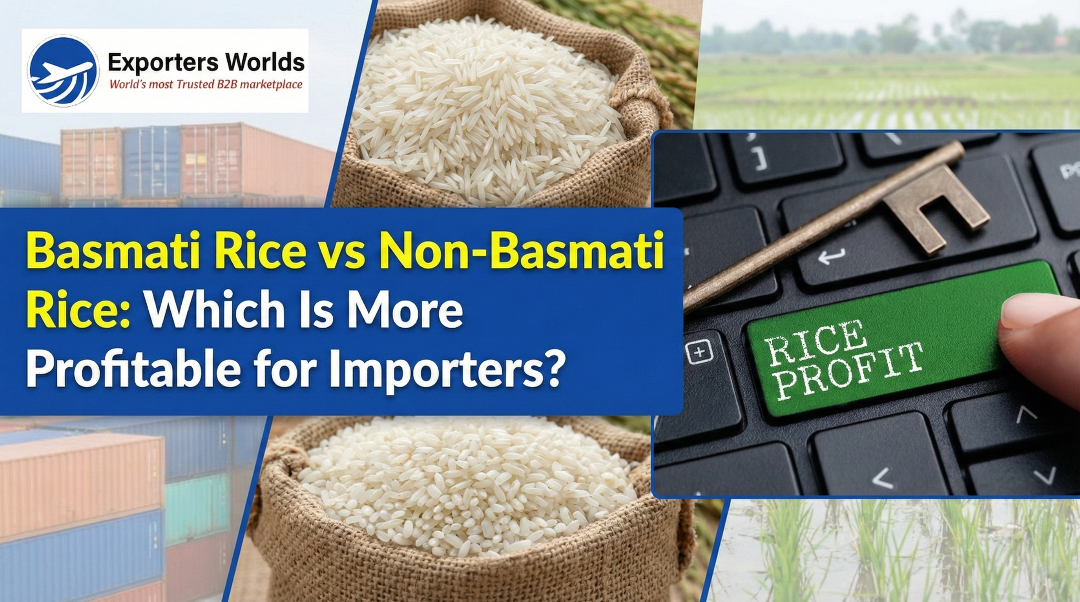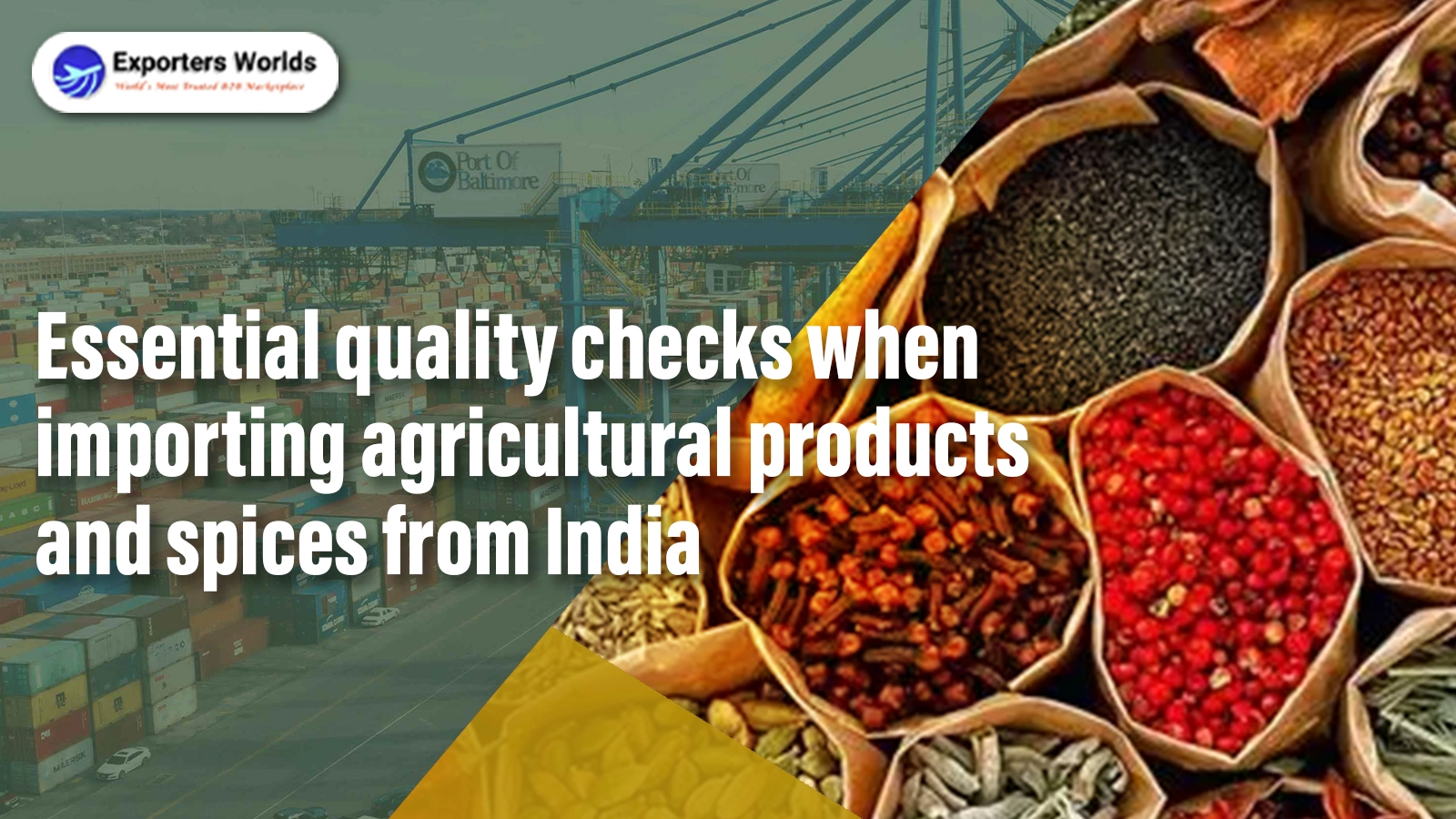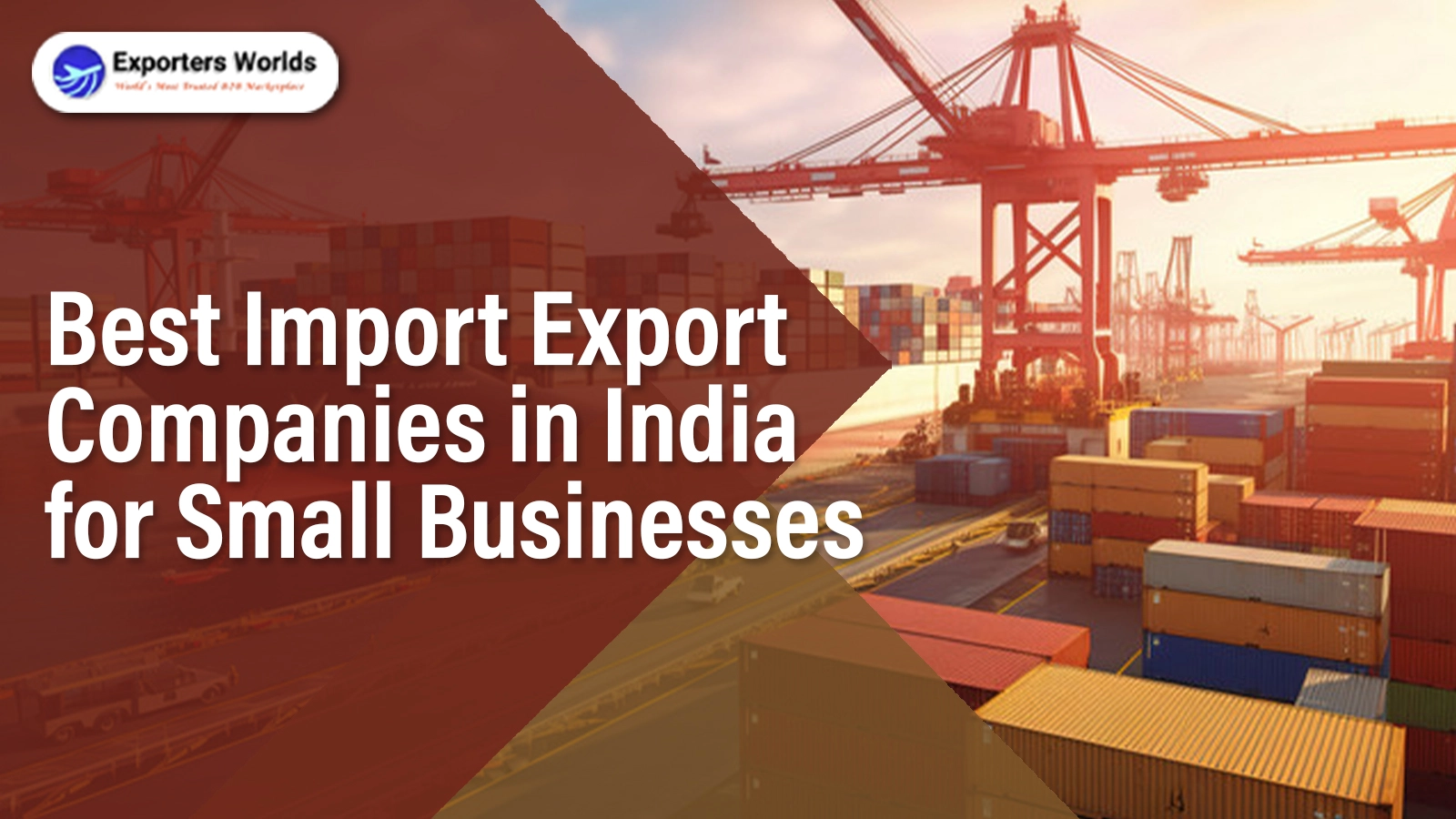Export-Import Giants: What Products India’s Top Traders are Focusing On

India’s global trade story is nothing short of fascinating. From spices to textiles, and machinery to energy commodities, the country has carved out a niche in almost every major sector. But if you’ve ever wondered what products India’s top traders are actually focusing on, or how the biggest names operate, this guide is for you. Whether you’re exploring what is import export business or considering your own venture, understanding these giants and their strategies can provide invaluable insights.
Understanding the Import-Export Business in India
An import-export business involves the buying and selling of goods across international borders. In India, this industry is a major driver of economic growth, generating foreign exchange and creating global opportunities.
For new traders, it’s crucial to understand that a well-thought-out import export business plan can make the difference between profit and loss. Examples of thriving import export businesses in India include agricultural commodities, textiles, engineering goods, chemicals, pharmaceuticals, and energy products. By identifying high-demand products and partnering with credible suppliers, businesses can navigate this complex market effectively.
What Products India’s Top Traders are Focusing On
India’s export-import sector thrives on a mix of traditional and modern products. Here’s a detailed breakdown of the sectors and the giants driving exports:
1. Agricultural Commodities
India is a global leader in agricultural exports, supplying spices, grains, and fresh produce worldwide.
-
Spices: Turmeric, cardamom, black pepper, and chili are major export items. Companies like Everest Spices and Synthite Industries dominate this sector with high-quality processing and global distribution.
-
Grains & Pulses: KRBL Limited exports over 200,000 tons of Basmati rice annually to more than 80 countries. Chickpeas, lentils, and other pulses are also in high demand, particularly in the Middle East and Africa.
-
Fruits & Vegetables: Fresh mangoes, pomegranates, and okra are supplied by companies like Godrej Agrovet, leveraging cold chain logistics to maintain product quality overseas.
2. Textiles & Apparel
Textiles are among India’s oldest and most valuable export sectors.
-
Cotton & Yarn: Companies such as Arvind Mills and Welspun export raw and processed cotton to markets worldwide.
-
Ready-Made Garments: Raymond exports premium suiting fabrics and apparel to over 60 countries, maintaining India’s reputation for quality textiles.
3. Engineering & Industrial Goods
These products highlight India’s manufacturing expertise.
-
Automobiles & Components: Tata Motors and Mahindra SSG supply vehicles and automotive parts internationally, particularly to Africa and Southeast Asia.
-
Machinery & Electronics: Companies like Bharat Forge and Larsen & Toubro (L&T) export industrial machinery, turbines, and electrical equipment, serving industries across the globe.
4. Chemicals & Pharmaceuticals
India’s chemical and pharmaceutical exports are highly valued for quality and cost efficiency.
-
Bulk Chemicals & APIs: Aarti Industries specializes in chemicals, while Cipla exports pharmaceutical products and active ingredients to over 100 countries.
5. Energy & Commodities
Energy remains a critical export sector for India.
-
Oil & Coal: Reliance Industries and Adani Group dominate these exports, supplying raw and refined products worldwide.
-
Renewable Energy Products: India is increasingly exporting solar panels and related equipment, driven by global demand for sustainable energy solutions.
6. Handicrafts & Home Décor
Indian craftsmanship continues to find a market internationally.
-
Traditional Crafts & Furniture: Companies like FabIndia and Good Earth export artisanal furniture, décor, and handicrafts to the U.S., Europe, and Asia.
India’s Biggest Import-Export Giants
Let’s now take a closer look at the top companies shaping India’s export-import industry:
-
Reliance Industries Limited – Focuses on oil, petrochemicals, and textiles; exports to over 60 countries. Its diversified portfolio and integrated logistics make it a global leader.
-
Adani Group – Specializes in coal, oil, and renewable energy; rapidly expanding into international renewable markets.
-
Tata International – Exports automobiles, engineering goods, chemicals, and textiles to more than 40 countries, with a reputation for reliability and innovation.
-
Mahindra SSG (Mahindra & Mahindra) – Supplies automotive components, tractors, and engineering solutions globally; strong presence in Africa and Southeast Asia.
-
Godrej Agrovet – Exports oils, poultry, animal feed, fruits, and vegetables; emphasizes sustainable farming and quality control.
-
KRBL Limited – Known for Basmati rice; exports over 200,000 tons annually to 80+ countries, focusing on premium quality.
-
Arvind Mills – Supplies cotton, yarn, and textiles globally; invests in technology and sustainable production.
-
Raymond Ltd. – Exports ready-made garments and suiting fabrics; strong design innovation and premium quality appeal to international buyers.
-
Wipro Enterprises – A key exporter of food products, personal care, and industrial chemicals; focuses on quality control and supply chain efficiency.
-
FabIndia – Focuses on handicrafts, furniture, and décor; leverages authentic Indian craftsmanship and fair-trade practices for global markets.
These companies demonstrate India’s export-import diversity, combining traditional products like spices and textiles with modern industrial goods, energy, and chemicals.
Case Study: Wipro Enterprises
A standout example in the food and consumer goods export sector is Wipro Enterprises:
-
Products: Edible oils, personal care products, industrial chemicals.
-
Global Reach: Supplies to over 50 countries, maintaining stringent quality and certification standards.
-
Business Approach: Emphasis on product innovation, sustainable practices, and consistent compliance with international trade regulations.
This case shows how diversification and quality focus can help Indian companies remain competitive globally.
Recent Trends in India’s Export-Import Market
India’s global trade is evolving rapidly:
-
Organic & Health Products: Rising demand for organic spices, cereals, and pulses.
-
Digital B2B Platforms: Businesses increasingly leverage online marketplaces to connect with verified buyers.
-
Technological Integration: AI and data analytics help exporters predict market trends, manage logistics, and optimize pricing.
Interesting Facts:
-
India is the world’s largest exporter of spices, serving over 75 countries.
-
Basmati rice exports generate more than $3 billion annually.
-
Indian textiles see a 20% YoY growth in international trade.
-
The pharmaceutical industry ranks third globally in volume.
-
India is among the top five suppliers of engineering goods to the Middle East.
Closing Thoughts: Your Pathway to Global Trade
Understanding what products India’s top traders are focusing on is the key to strategic decision-making in the import-export industry. Aligning your business with proven sectors—spices, textiles, engineering goods, pharmaceuticals, and energy—can maximize growth and profitability.
This is where Exporters Worlds becomes indispensable. India’s premier B2B marketplace, Exporters Worlds connects you to verified suppliers and buyers, simplifying international trade. From data-driven insights and trade documentation assistance to verified lead generation, it’s a one-stop solution for businesses aspiring to expand globally.
Whether you are exploring import export business examples or planning your business strategy in India, Exporters Worlds can guide you toward sustainable, profitable, and globally compliant trading opportunities.




